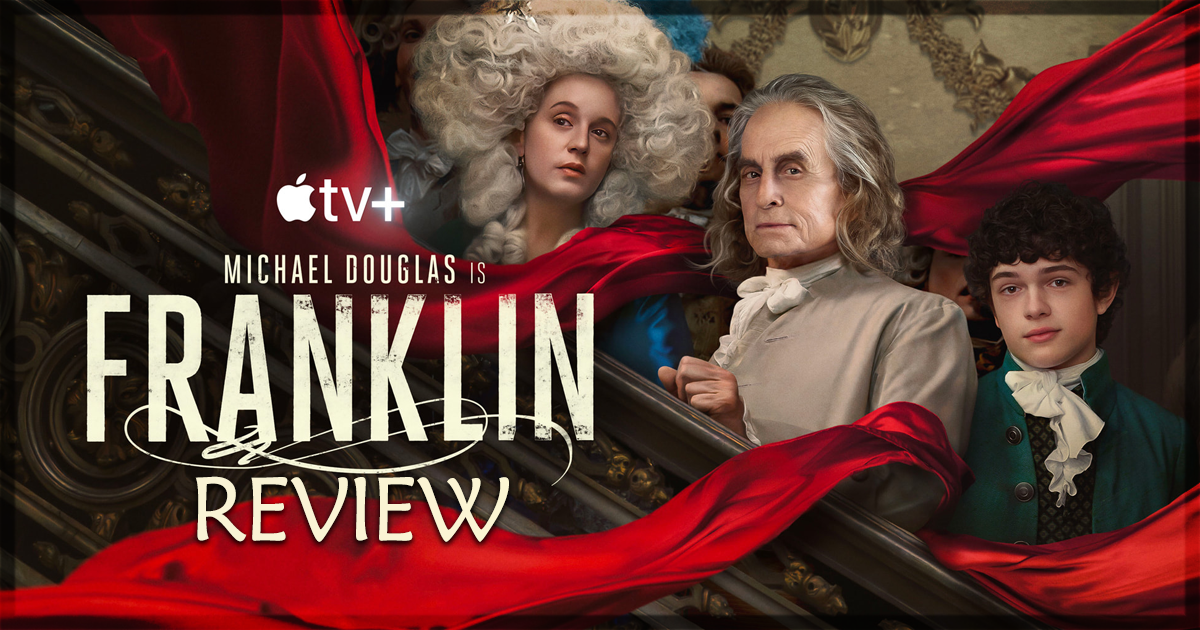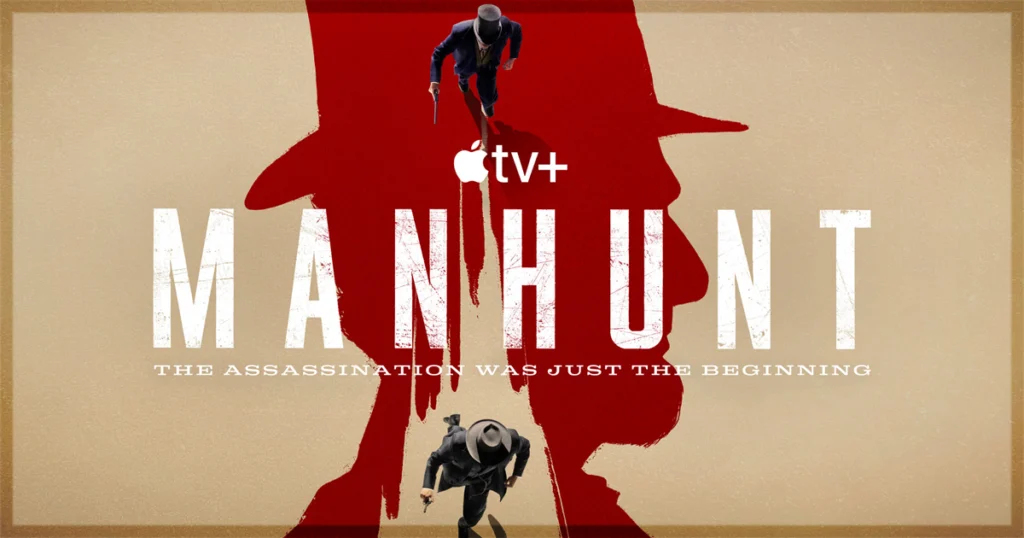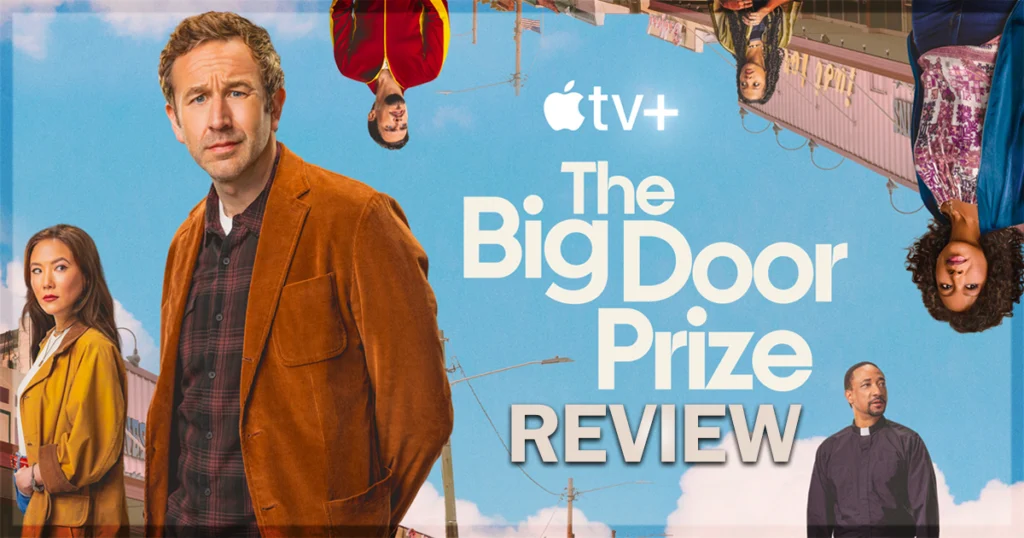AppleTV+ seems to be carving out a nice niche for itself in prestige period miniseries that combine the holy trinity of the genre: star-studded casts, rich production design, and a topic of historical importance delivered with a glossy respect. Franklin, created by Kirk Ellis – perhaps previously best known for creating HBO’s magnificent miniseries John Adams – fits the model perfectly and sees its creator returning to familial and fertile ground. Franklin follows Benjamin Franklin – polemicist, statesman, inventor, all-around wit, and by far the most famous Founding Father never to become President of the United States – during the pivotal years he spent in France during the American War of Independence.
Many US viewers or fans of the musical Hamilton may remember that France under Louis XVI becomes a key ally to the American colonies-turned-states, but – like the best stories – Franklin understands that it is not what happens but how it unfolds that makes a tale worth (re)telling. Ellis and co-writer Howard Korder’s scripts may veer towards the prosaic, but they allow space for the mundane, human moments happening between trying to establish a new nation built on revolutionary democratic principles.
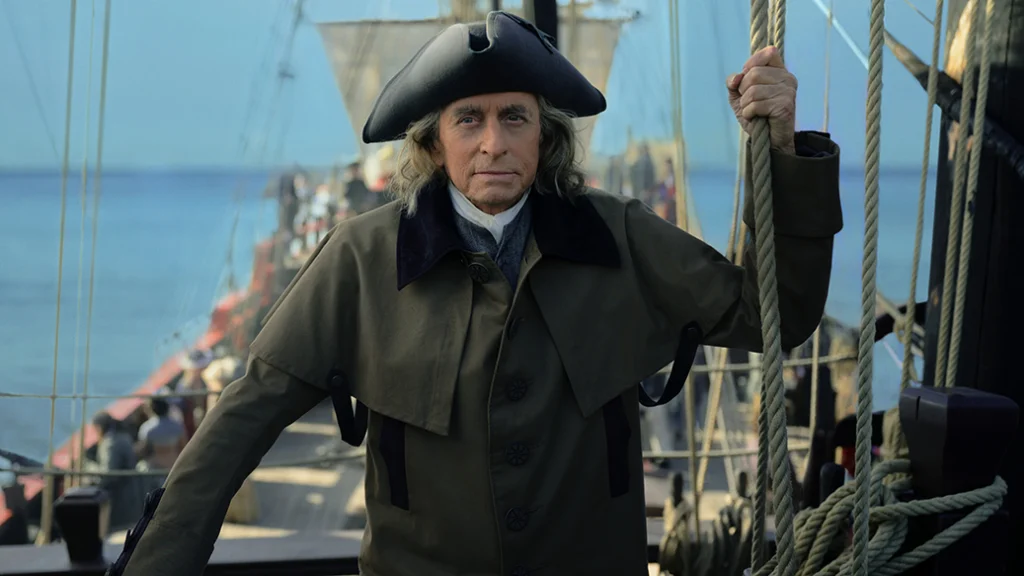
Michael Douglas as Benjamin Franklin: A Performance of Gravitas and Wit
There are few actors today matching the combination of gravitas and star power of Michael Douglas; with a long career of accolades and old-school Hollywood glamour, the 79-year-old actor feels a natural, but also an inspired, pick for perhaps America’s most accomplished polymath. At this stage in Franklin’s life and varied career, he was known and respected on both sides of the Atlantic, considered a relic of an earlier era by some but maintaining a sharpness that never allows himself to slide towards obsolescence – be that when arguing on Parliament floor or when courting French ladies. Douglas feels similarly placed; he may never make a film again that has the cultural impact of Wall Street or Fatal Attraction, but it does not mean that his best performances are behind him.
The lack of prosthetics is an inspired choice; in an age when hair and makeup Oscars are regularly won for recreation of a famous visage rather than creation and imagination in evoking a time, letting Douglas become Franklin without artificial distraction is a welcome relief. It does not matter that he does not look like the spitting image of the hundred dollar bill – his credibility in performance is unblemished.
While Franklin’s verbal sparring and political mind are vividly captured, the poignancy in Douglas’ performance comes from contrasting the great man’s still-sharp mind with his failing health. Franklin’s growing physical frailty alarms his American comrades and gives the French and British ammunition to underestimate and undermine him. The reactions and (intentional or unintentional) condescension of his peers take their own toll, and Douglas’ portrayal of a man fighting for his own dignity and against his mortality is extraordinarily moving.
A Strong Supporting Cast
The supporting cast is uniformly strong and able to go toe-to-toe with Douglas, but the writing often lets individual subplots feel unfinished. Noah Jupe exudes charisma and wide-eyed American charm, but the show is never quite certain how seriously to take his own burgeoning idealism. Seeing Daniel Mays, one of the UK’s best stage and character actors, as Franklin’s doctor (and sometimes British spy) Edward Bancroft is a prime joy of Franklin, and one hopes the series makes him a known player on both sides of the Atlantic. Late in the series, Eddie Marsan delivers a striking, taciturn take on John Adams – the role Paul Giamatti so memorably played for Ellis and serving another’s story equally well. On the French side, the standout is Théodore Pellerin as Gilbert du Motier – or, as American history buffs will come to know him, the Marquis de Lafayette.
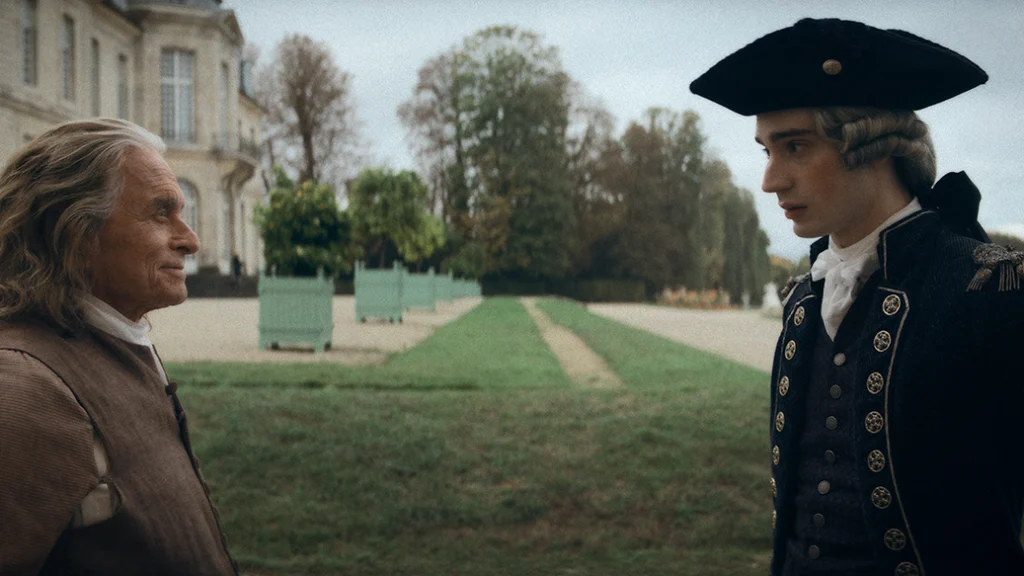
Cinematography and Historical Detail in Franklin
The extensive use of natural lighting in David Franco’s cinematography highlights both the luxury and the growing decay of France in the 1780s, mere years before its own Revolution. The juxtaposition of French court finery with people farting, belching, or urinating against carved stone statues and buildings gently mocks the hypocrisy of an aristocracy captivated by new, often homegrown philosophies of liberty for all. The ordinariness of such actions makes its own statement – the past was not sanitized, nor was it always remarkable – but never reaches to something bigger.
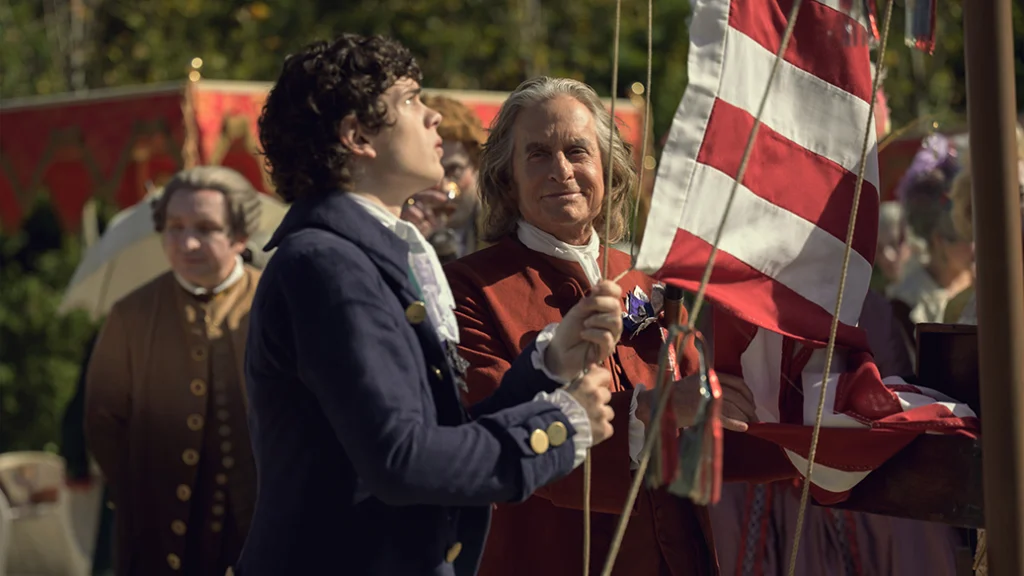
As a result, Franklin is beautifully crafted and very good, but falls short of greatness. The focus and messaging wanders; as opposed to the recently-released and far superior Manhunt, also on Apple TV+ and dealing with a pivotal chapter of United States history, Franklin never quite coalesces in tone or theme. It is nice spending eight hours in the company of Douglas/Franklin and company in a richly evoked historical time, but any attempt to contextualize this historical moment within its time or through the lens of ours is blurry. There seems to be a fear of going beyond the known and widely accepted – and many of these known and widely accepted facts (Franklin’s irreverent wit, flatulence, and womanizing) feel tamed. One wonders what Tony McNamara of The Great would have done with this material.
The Uncertainties of History: Franklin’s Legacy
But to Franklin’s immense credit, the well-known outcome never feels inevitable. In a pivotal final episode scene, Franklin finds himself in the middle of peace negotiations, and after minutes of back-and-forth offers and counter-offers, he clearly and confidently tells the room, “I don’t know.” The present is shaped by the tiny uncertainties of the past, and each compromise, consideration, and choice opens multitudes of possibilities and might-have-beens. Franklin and his compatriots do their best to face down a future they hope for but cannot guarantee. Their experiment still echoes today.
Franklin is now streaming on Apple TV+.
Learn more about the series, including how to watch, at the Apple TV+ website.
You might also like…
‘Manhunt’ Series Review: Cast Thrills in Gripping Historical Drama
‘The Big Door Prize’ Season 2 Review: A Series That Continues to Rise to the Occasion
‘Acapulco’ Season 1 Review: Apple’s Latin-Flaired Feel Good Comedy

